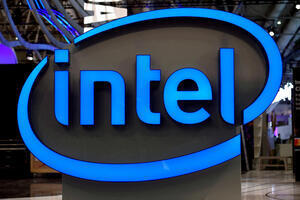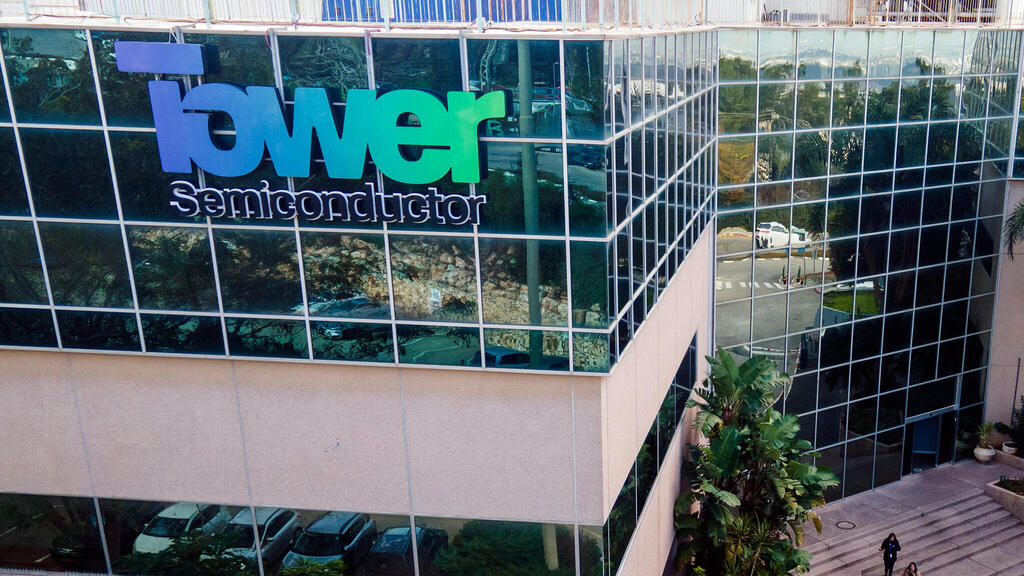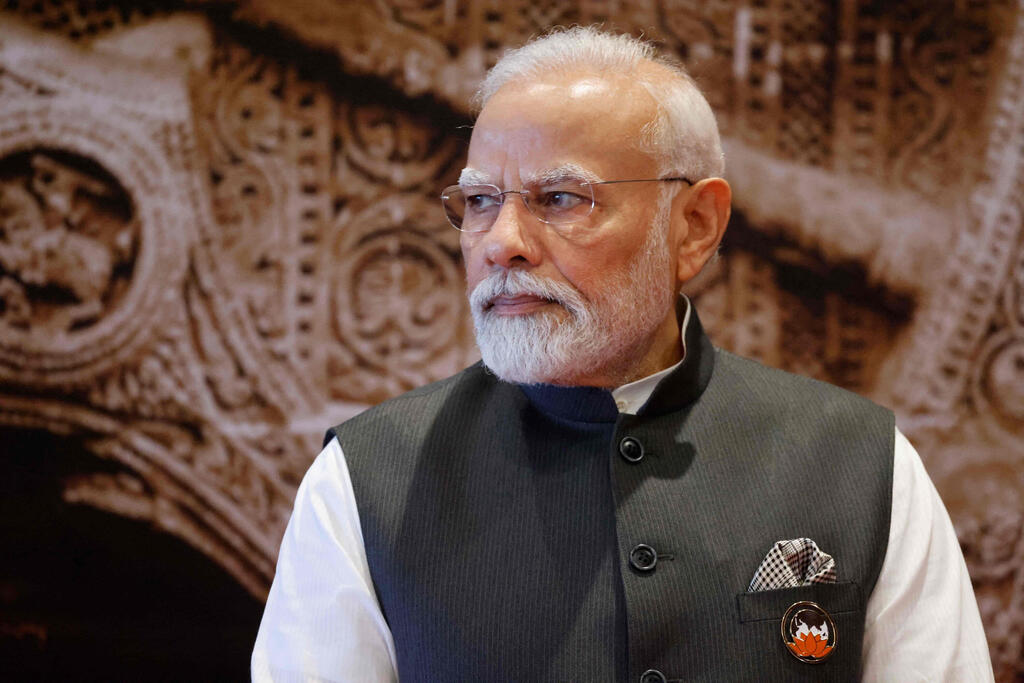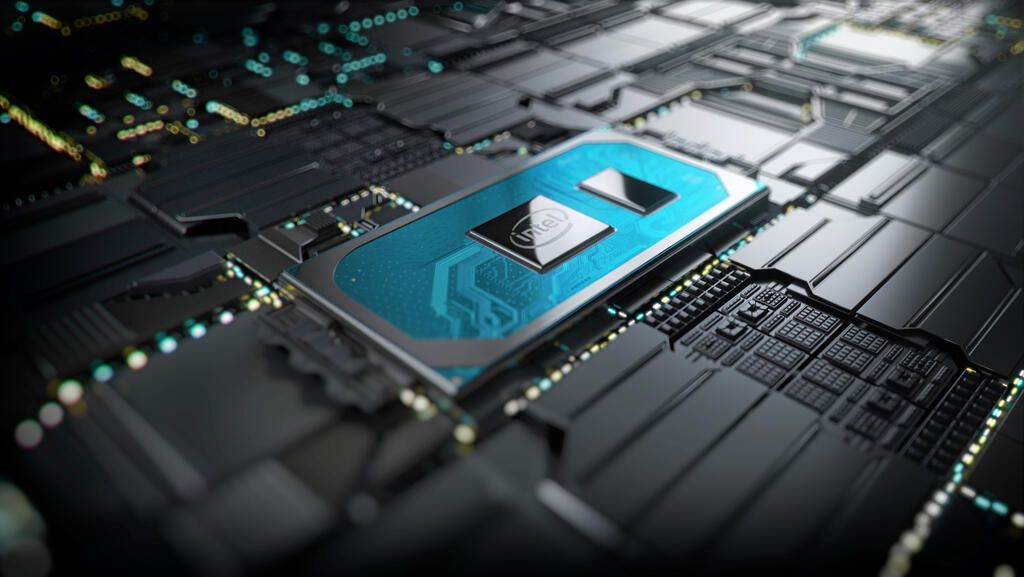Getting your Trinity Audio player ready...
The years 2022 and 2023 were two wasted years for Israeli computer chip manufacturer Tower, but if you ask Tower’s CEO Russell Ellwanger, appearances can be deceiving. Two years ago, in February 2022, Intel announced it would acquire Tower for $5.5 billion to establish its new chip manufacturing division with the Israeli company.
More stories:
However, the deal was not looked upon favorably by the Chinese regulator, who saw it as a threat to local chip manufacturing facilities and blocked it, leading to its cancellation last August. Tower received compensation of $313 million from Intel, but it's easy to see that the company stagnated rather than grew over this period.
Throughout these two years, Ellwanger, who has served in his role for 18 years, remained silent, and spoke out for the first time on Wednesday with the publication of the company’s financial reports for 2023.
'I’ve never been more excited about Tower's future'
"I call the process with Intel a victory we pulled from a jar of failures," Ellwanger quips, but immediately translates the event into business-speak: "The almost-sale of Tower to Intel gave us a lot and served as an accelerator for the company, which is great. I’ve never been more excited about Tower's future than I am now an despite expectations that I’ll retire after the sale to Intel, I’m 100% committed to staying and there is a lot of work to do.
Tower has always had excellent technology, but subpar manufacturing capability. "Through Intel and relying on its manufacturing capability, we reached customers we otherwise wouldn’t have. Intel wasn’t involved in managing Tower prior to the deal's cancellation because it was illegal for them to do so, but we did have the opportunity to work with potential customers and also increased manufacturing capability to meet future demand. If we hadn't embarked on this journey, we wouldn't have been exposed to such great experiences," Ellwanger explains.
Tower did expand its manufacturing capacity through a kind of "compensation deal" it received from Intel after the acquisition was canceled. The Israeli company was given the opportunity to expand and produce computer chips at Intel's factory in Albuquerque while relying on American incentives under the CHIPS ACT, a program to encourage the establishment of computer chip factories in the U.S. competing with a similar program in Europe.
As China and the U.S. intensify their war for trade, increasingly so with the Chinese support for the Iranian-Russian axis since the outbreak of the war in Gaza, relocating chip factories outside of China becomes increasingly important. This is also true for Taiwan, which is under the threat of Chinese annexation due to global geopolitical instability.
However, while the world fights over chip factories, it turns out that Israel isn’t part of the game. When asked whether Tower is planning to establish a new factory in Israel, Ellwanger holds back his laughter: "There's no subsidy in Israel that would make establishing a factory here profitable," he says. "The U.S. provides a grant covering 35% of the startup costs, India provides a 75% grant, while Israel currently provides only a 9% grant compared to the 34% we received in the past."
Tower isn’t only holding back on establishing a new factory in Israel to accelerate its manufacturing capacity, but it announced Wednesday it intends to shut down Fab1, Tower's first computer chip factory in Migdal HaEmek. According to Ellwanger, the 40-year-old factory has become outdated, as have the products it produces.
"There's no point in keeping a factory running if it will create a negative cash flow, and we decided to close it before it starts adversely affecting our numbers. No Tower employee will be laid off as a result of this; they’ll be offered to transfer to Fab2, which will be expanded this year, or to relocate to one of our factories abroad," Ellwanger says.
"We didn't lay off employees during the COVID-19 pandemic, nor in the past year, which was tough for the entire tech industry, because I don't believe in layoffs aimed at meeting financial targets,” he adds.
“If you treat employees well, customers will be satisfied too, and then shareholders will prosper," he explains. Tower employs around 1,500 workers in the two factories in Migdal HaEmek, making the company one of the largest employers in the city and one of the largest in northern Israel.
Meanwhile, Tower is expanding its production capacity by 22% in the Fab2 factory in Migdal HaEmek, which is 20 years old , but the mention of India in the context of financial incentives isn’t accidental.
New opportunities in India?
Immediately following the cancellation of the deal with Intel, estimates surfaced that Tower would return to India, which began courting it again prior to the sale. According to reports in Indian media, which Ellwanger refuses to confirm, Tower is bidding for the establishment of a new computer chip factory in the country worth $8 billion.
"Out of everything published in local media there, I can only confirm that I met with the Indian IT Minister a few months ago," says Ellwanger. However, Tower began considering the Indian option several years ago and, in early 2022, it even joined a consortium of companies planning to establish a factory in the country with an investment of $3 billion.
While China and the U.S. clash, India has identified its opportunity to break into the computer chip market and set a target of $300 billion in electronics production by 2026, including around $60 billion in chip manufacturing.
Narendra Modi's government announced the move as early as 2019, and since then it has released the valve for various incentives to establish chip factories in the country. But the move isn’t succeeding as well as the country had hoped, and the local chip industry isn’t taking off. Part of this was Tower's fault for investing in a merger with Intel, but things may now change especially in light of the generous incentives in the country.
But until Tower's Indian future takes root, one of its two factories in Japan, which is close to the epicenter of the recent earthquake that struck the country on January 1, 2024, was affected and took a month to become fully operational once again.
In addition, a weak forecast for the first quarter of the year expects the company’s revenues to reach only $325 million, compared to revenues of $352 million in the final quarter of 2023, which were slightly higher than the forecast, but reflected continued downturn throughout the year.
In the third quarter of 2023, Tower’s revenues reached $358 million, and stood at $403 million in the fourth quarter of 2022. Throughout 2023, its total revenues amounted to $1.42 billion, a 15% decrease compared to 2022.
Tower's profitability was also affected, although the compensation from Intel greatly covered this, allowing Tower to present an operating profit of $547 million compared to an operating profit of $312 million in 2022.
Net profit stood at $518 million compared to $265 million in 2022, but excluding Intel’s compensation, it represents a decrease in revenue. Regarding the company’s performance in 2023, Ellwanger marked signs of recovery in several segments of the computer chip market and estimates that despite the lukewarm forecast for the first quarter of 2024, Tower will grow throughout the coming year.
Tower's stock rose by almost 7% after the report was published on Wednesday, with a value of $3.5 billion, after falling on Tuesday, though it is still far from the value of $5.5 billion the deal with Intel has assured for its future.
First published: 22:29, 02.15.24






